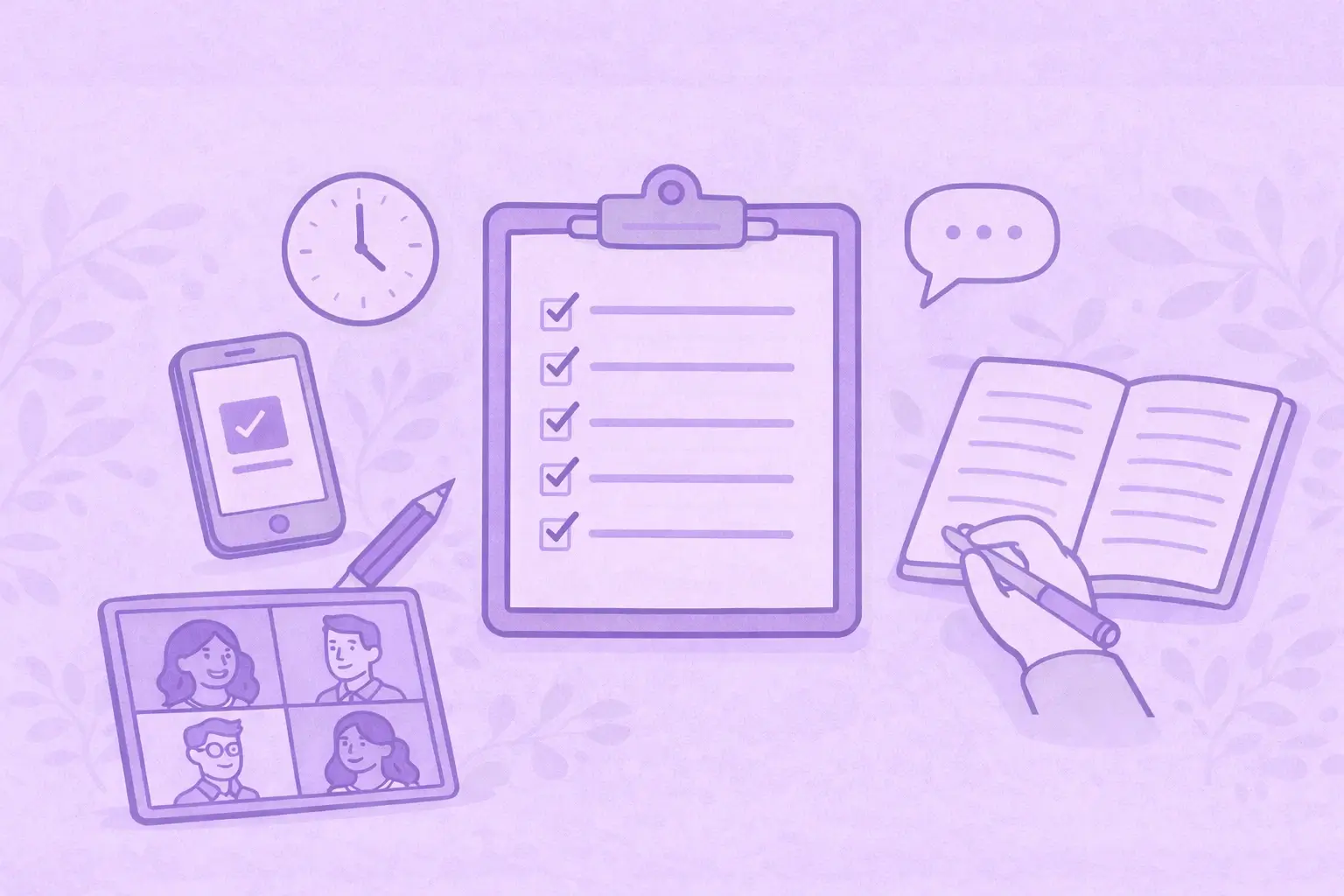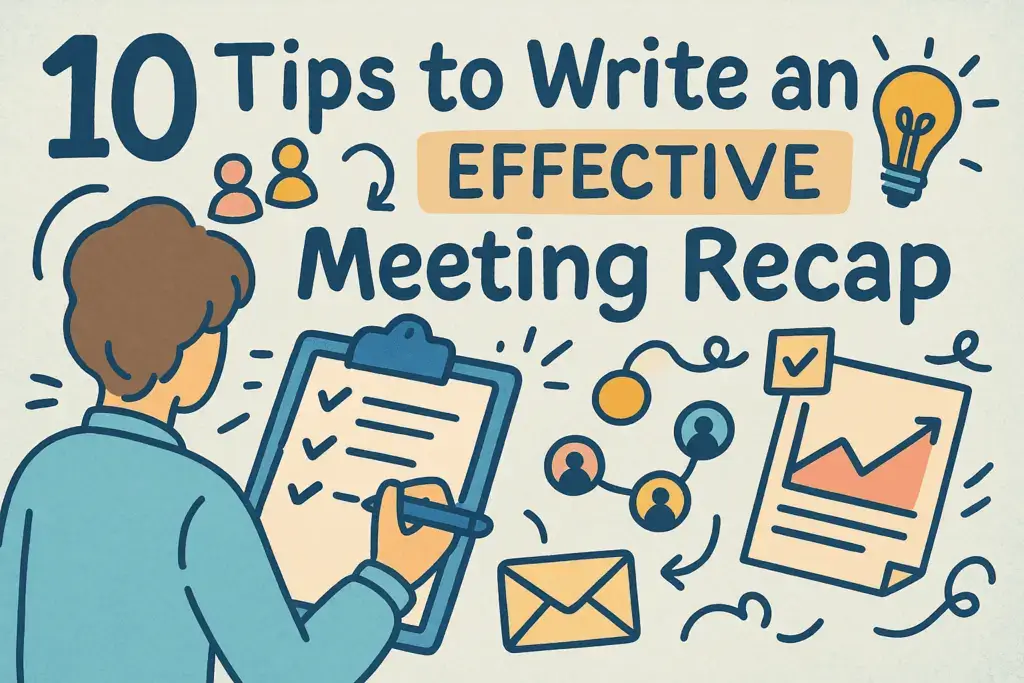Client Engagement Letter: Overview, Format & Sample
Looking to define the relationship with your clients and draft the perfect engagement letter? Here is everything you need to know!

✅ Free meeting recording & transcription
💬 Automated sharing of insights to other tools.

Image Source: freepik on Freepik
What Is a Client Engagement Letter?
A client engagement letter is a legal document that defines the relationship between a professional organization and a client. It outlines the roles and responsibilities of each party, the fees, billing arrangements, and other relevant details related to the engagement. This document is used in many fields, including accounting and legal services.
Why Are Engagement Letters Important?
Engagement letters allow the parties involved in an agreement to properly identify and understand their rights and obligations. This helps to ensure that: a. clients receive the services they require, and b. you clearly understand the expectations your client has from you.
Here are the main advantages of using engagement letters:
A. They are legally binding
B. They help to set expectations
C. They prevent misunderstandings
Let’s take a closer look at each of these benefits!
A. They Are Legally Binding
Once both parties sign the client engagement letter, the document becomes legally binding. If either party fails to fulfill the obligations stipulated in the letter, the other party may take legal action to enforce the agreement. This could include seeking damages, terminating the agreement, or other remedies as outlined in the agreement. To ensure your assets are protected from any possible legal action, it's important to register your business as an LLC.
B. They Help to Set Expectations
Client engagement letters help set expectations by clearly stating the professional services the two parties have agreed upon, how much they will cost, and when the work completion date is.
C. They Prevent Misunderstandings
Client engagement letters also represent a framework for how the parties will communicate and resolve any disputes that may arise.
Misunderstandings can occur at any given time during client communication. That’s why you need everything that happens during client meetings in writing. MeetGeek can help you with that. Our virtual meeting assistant that automatically records, transcribes, analyzes, and summarizes your meetings, so you can properly focus on your clients!

Engagement Letter Format
Although you should tailor your engagement letter to your particular situation and needs, there are a few mandatory elements to any good engagement letter:
- Identification
- Service details
- Responsibilities of each party
- Period of engagement and end date
- Professional standards
- Fee Structure, retainer payment, and other costs
- Confirmation of terms
- Client's signature.
Here is how to integrate each of them successfully into the ultimate engagement letter!
1. Identification
As the name suggests, the identification clause states the identity of the individuals involved in the arrangement. This item usually includes each contracting party’s full legal name, address, and contact information. Additionally, you should mention information such as tax identification number, company registration number, or other identifying information.
2. Service Details
Engagement letters should accurately and comprehensively describe not only what are the services that the parties agreed upon but also any specific details that they deem necessary.
If the services you or your company provide are more complex, consider breaking them down into smaller sections. This allows both you and your client to easily identify what each part of the process is and what the successful completion of each step entails.
If you’re providing multiple services that the client purchased separately, make sure to indicate the description of each service.
PRO TIP: Consider including a scope creep provision. If the client requests additional services or the scope of the project changes as the project progresses, this can prevent disputes between you and your client.
3. Responsibilities of Each Party
Remember that your responsibilities are not limited to the services you provide but also to how you deliver them. Include all the relevant aspects regarding the communication with your client (via e-mail, over the phone, face to face), how frequently you need to update them, etc.
FACT: Engagement letters are unilateral agreements, with only one party making a promise to the other, but both parties must accept and sign the letter for it to be valid. This doesn’t mean that the client has no obligations toward the provider but that the service provider is the one who delivers the work.
4. Professional Standards
When drafting a new engagement letter, always include all the applicable professional standards and codes of conduct you will adhere to for the duration of the agreement. Make sure to include any details regarding confidentiality and data protection in this section.
5. Fee Structure, Retainer Payment & Other Costs
Describe the fee structure for the engagement. This should include the total feet or hourly rates and any additional charges for items such as out-of-pocket expenses.
Include any details regarding the retainer payment, if applicable. Specify the total amount of the retainer, the payment schedule, and any terms and conditions associated with the retainer payment.
Make sure to also include any other costs associated with the engagement items such as travel expenses, filing fees, or any other legal costs.
6. Period of Engagement & End Date
Clearly state the dates of commencement and completion of the engagement, along with any other terms or conditions. To set the right expectations and reduce liability, get as specific as possible. State the day, month, and year you will complete your work.
7. Dispute Resolution Provisions
Include a clause that limits your liability by specifying the maximum amount of liability. This clause should also make clear that you are not responsible for any consequential damages resulting from the services provided. Also, state that the client is responsible for any costs or damages that incur as a result of the client’s breach of the engagement.
PRO TIP: Consider including clauses dedicated to the limitation of confidentiality, a disclaimer of any implied warranties, and any provisions regarding potential conflicts of interest.
8. Confirmation of Terms
This section should confirm that the client understands all the contents of the engagement letter. Take the time to explain to your customers the business and legal implications of all the provisions in the document in a way that makes sense to them.
9. Client's Signature
Provide a signature line at the end of the document. This indicates where the client should sign and the date of the signature. If applicable, also include the client’s title and make sure you sign the engagement letter.
FACT: Engagement letters do not need to be made in duplicate. It is up to the parties involved to decide whether they need to have duplicate copies of the engagement letter.
The Non-Engagement Letter
If you want to formally reject an offer to enter into a contract or agreement, consider sending a non-engagement letter.
It outlines the reasons why the terms of the agreement are not acceptable and serves to reject the offer in its entirety. It is an important document to have as it provides a record of the rejection and the reasons why the offer was declined.
Sample Engagement Letter
Here is a sample of engagement letter format for professional services to help you come up with various engagement letter templates and be prepared for any situation! Additionally, including a letter of intent within your templates can clarify the preliminary commitments of both parties before formalizing the engagement, ensuring transparency and alignment of expectations from the outset.
CLIENT ENGAGEMENT LETTER EXAMPLE
This engagement letter outlines the services we will provide, our responsibilities, and the terms and conditions of this agreement.
I. IDENTIFICATION: The following Engagement Letter (“Letter”), dated on [mm/dd/yyyy], was requested by [NAME] [CONTACT INFORMATION], (“Client”) and agrees to hire Service Provider: [NAME] [CONTACT INFORMATION] (“Service Provider”).
II. SERVICES DETAILS: The Service Provider is required to provide the next [SERVICES & RESPONSIBILITIES] (“Services”).
- We will make all reasonable efforts to complete the project in a timely manner and to the best of our ability [DESCRIBE ANY APPLICABLE PROFESSIONAL STANDARDS].
III. FEE STRUCTURE:
- AMOUNT
For the Services provided, the Client shall pay $[AMOUNT] / Hour / total amount.
- RETAINER
As part of this Letter, the Client agrees to a Retainer Payment consisting of $[AMOUNT] due and payable at [DATE]. The Retainer Payment is refundable/non-refundable.
- ADDITIONAL COSTS
Additionally, the Client may be charged for any resources, filings, or any other costs directly or indirectly related to the Services.
IV. PERIOD OF ENGAGEMENT & END DATE: Payment is due [DATE] in full. If the project is not completed by the agreed-upon date, we will provide a full refund of the project fee.
V. DISPUTE RESOLUTION
The Service Provider is not responsible for any consequential damages resulting from the services described in this Letter.
Any costs or damages incurred as a result of the Client’s breach of the engagement will be supported in full by the Client.
VI. CONFIRMATION OF TERMS: IN WITNESS WHEREOF, the Client and Service Provider agree to the terms and conditions included in this document.
VII. SIGNATURE
Client’s Signature [SIGNATURE] Date [mm/dd/yyyy]
Service Provider’s Signature [SIGNATURE] Date [mm/dd/yyyy]
Start Writing Better Client Engagement Letters Now!
If you’ve been waiting to upgrade your professional services with the perfect engagement letter, now is your time to truly shine! And while you’re at it, try MeetGeek for free to upgrade how you keep in touch with your clients and keep track of how your projects unfold!
.avif)












